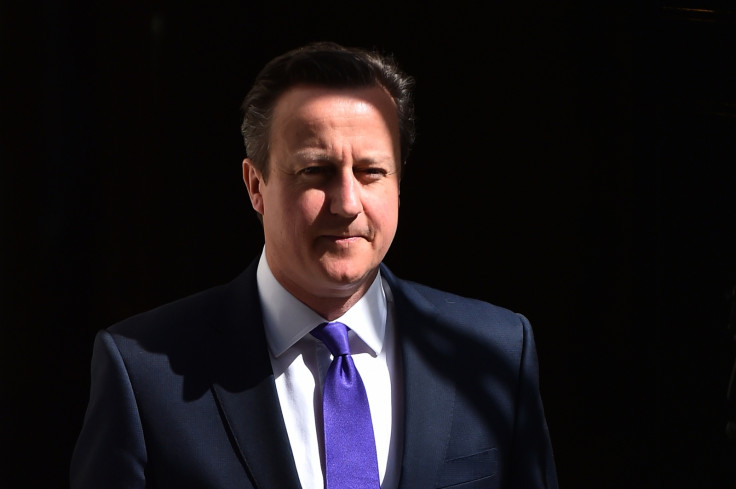David Cameron to stop European migrants living in UK from voting in EU referendum

David Cameron is to bar most of the EU citizens living in the UK from voting in the upcoming referendum on EU membership, according to a statement from Downing Street last night. He is also to rule out allowing 16- and 17-year old from voting.
However, many thousands of British Commonwealth citizens and an estimated 800,000 Irish citizens living in the UK will be allowed to vote. The full details of who can take part in the referendum will be published this Wednesday in the European Referendum Bill, to be included in the Queen's Speech.
Commonwealth of Nations members
Antigua and Barbuda, Australia, Bahamas, Bangladesh, Barbados, Belize, Botswana, Brunei, Cameroon, Canada, Cyprus, Dominica, Fiji, Ghana, Grenada, Guyana, India, Jamaica, Kenya, Kiribati, Lesotho, Malawi, Malaysia, Maldives, Malta, Mauritius, Mozambique, Namibia, Nauru, New Zealand, Nigeria, Pakistan, Papua New Guinea, Rwanda, Saint Kitts and Nevis, Saint Lucia, Saint Vincent and the Grenadines, Samoa, Seychelles, Sierra Leone, Singapore, Solomon Islands, South Africa, Sri Lanka, Swaziland, Tanzania, Tonga, Trinidad and Tobago, Tuvalu, Uganda, UK, Vanuatu, and Zambia.
The only countries which are members of both the EU and the Commonwealth of Nations are the Republic of Cyprus and Malta.
The number of EU migrants living in the UK who will be excluded is likely to exceed 1.5 million, though exact figures are unavailable. Their exclusion is being seen as a concession to the right wing of the Conservative Party.
EU migrants and 16 and 17-year olds were allowed to vote in last year's Scottish independence referendum. Pro-EU campaigners had wanted both groups to be included in the upcoming referendum.
However, the prime minister opposes lowering the voting age to 16. And sources close to Downing Street said that he does not believe that EU nationals, who cannot vote in British general elections, should decide on Britain's future in the EU.
Eurosceptic Tory MP Stewart Jackson last night applauded the move. He said it would have been "quite wrong" for EU citizens to participate.
European Union members
Austria, Belgium, Bulgaria, Croatia, Republic of Cyprus, Czech Republic, Denmark, Estonia, Finland, France, Germany, Greece, Hungary, Ireland, Italy, Latvia, Lithuania, Luxembourg, Malta, Netherlands, Poland, Portugal, Romania, Slovakia, Slovenia, Spain, Sweden, and the UK.
"This referendum is about Britain's future, " he said. "It should be British citizens voting in it. EU citizens cannot vote in general elections, they could not vote in the referendum on an alternative voting system and they did not vote on the last referendum on Europe. The circumstances would have had to be quite exceptional to depart from that precedent."
Downing Street has stated that the franchise for the referendum will be the same as for general elections. That means Irish and Commonwealth citizens living in the UK will be included.
The inclusion of these groups is less controversial than EU members, because their right to live and work in the UK is not dependent on the outcome of the referendum.
The government has also ruled out including all British citizens living abroad, though British citizens who have lived abroad for less than 15 years will be able to vote - as for general elections.
The EU referendum bill, which will be announced after the Queen's speech on Wednesday, will make clear that the franchise – the people eligible to vote – will be the same as in general elections, which is adults from the age of 18, Irish and Commonwealth citizens resident in the UK, and British citizens who have lived abroad for less than 15 years.
The government has ruled out including all British citizens living abroad, despite a pre-election promise from Conservative Party chairman Grant Shapps to extend the current franchise for expatriates beyond those who overseas for less than 15 years.
No date has yet been set for the referendum, but it could be held as early as next spring.
© Copyright IBTimes 2025. All rights reserved.





















